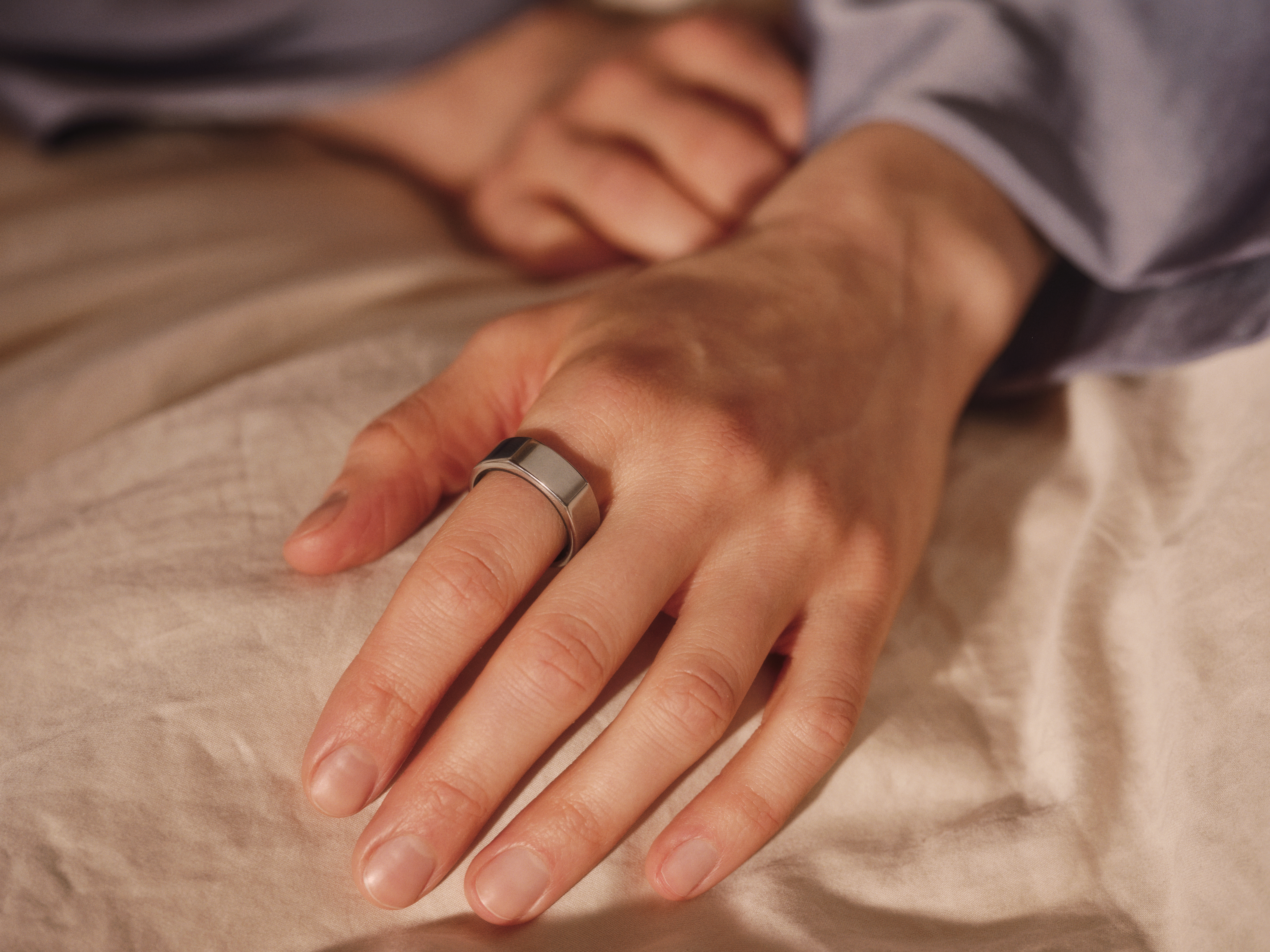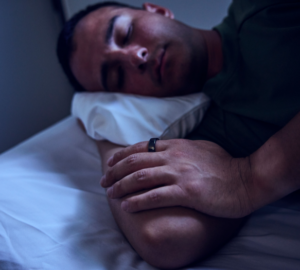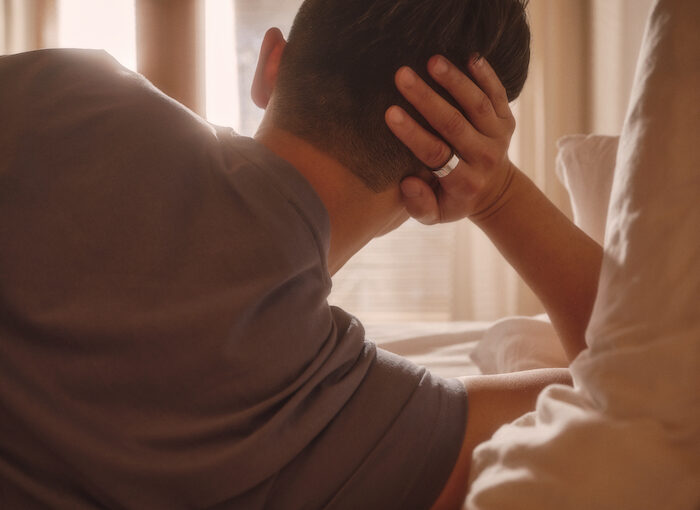- While it’s physiologically difficult to oversleep, there are times when you may sleep longer than is normal.
- Most adults need 7 to 9 hours of sleep, but there are insistences when you might need more – like if you’re sick.
- If you are oversleeping, it might be because you’ve accumulated sleep debt, are not getting high-quality sleep, or you may have a sleep disorder like sleep apnea.
Getting enough sleep reduces your risk of illness and chronic disease, lowers stress, improves mental health, and so much more. So surely the more you sleep, the healthier you are? Not so fast.
When it comes to sleep, it’s not always a case of “the more, the better.” How much sleep is too much? According to the National Sleep Foundation, “oversleeping” is defined as sleeping more than nine hours in a 24-hour period. This is because most adults need about 7 to 9 hours — though there are exceptions and circumstances in which that changes, which we’ll get to later.
However, even before you worry about sleeping too much, you have to know how much shuteye you’re actually getting. Using a wearable like Oura Ring can help you track your sleep.
With sleep-tracking technology that matches performance with the gold-standard polysomnography test, Oura gives members a Sleep Score out of 100 to provide insights into the quality of your sleep. Various factors influence this score, including the duration of sleep, latency (how long it took you to fall asleep), and restfulness (how many times you woke up during the night).
Understanding how much sleep you really need — and knowing if you’re getting too much — comes down to a number of factors. Read on to find out some potential causes, and possible consequences of sleeping too much.
READ MORE: Why Am I Tired?
Is it Possible to Sleep Too Much?
Physiologically speaking, no. “The likelihood that you’re consistently oversleeping is very low, and it’s physiologically very difficult for someone to sleep too long,” explains Raphael Vallat, PhD, senior machine learning data scientist and former sleep researcher at UC Berkeley.
“For example, I could try to sleep 12 hours, but after eight or so hours, I’d wake up and not be able to fall back asleep.”
First, quick rewind: Sleep is regulated by a complex interplay of physiological and hormonal processes in the brain and body, known as the circadian rhythm. The associated hormones, such as melatonin and adenosine, affect how long you are asleep each night (assuming there aren’t other interruptions, like alarms or young children!).
Adenosine is produced in the brain while you’re awake and builds up throughout the day, slowly increasing the feeling of sleepiness. While you’re asleep, levels of adenosine decrease, influencing the time at which you wake up in the morning.
Aside from hormones, your brain also responds to light exposure, signifying that it’s the morning. That’s why many people find it difficult to sleep for long periods during the day unless they’re in a dark room or sufficiently sleep deprived. All of these mechanisms are designed to prevent you from sleeping beyond what is required.
However, as Vallat says: “The only way you’re able to substantially oversleep is if you’re sleep deprived or if there’s something else going on.”
Read on to find out more about what that “something else” could be.
4 Potential Reasons Why You’re Oversleeping

1. You’ve accumulated sleep debt.
Just like financial debt, sleep debt is a matter of simple math. If the recommendation for healthy adults is seven to nine hours of sleep per night, but you only get four to six, that creates a sleep debt of one to three hours per night.
Tempted to sleep in when you have the time? Yes, getting an extra hour or two may help restore your Sleep Balance, but getting surplus sleep to make up for sleep debt isn’t a cure-all. For starters, you may not be going through all the necessary stages of sleep; plus doing so can mess with your hormones as well as your sleep-wake cycle.
LEARN MORE: Sleep Debt: Is It Possible to Catch up On Lost Sleep?
2. You might not be getting as much quality sleep as you think.
According to Vallat, it’s important to make the distinction between spending time in bed awake versus in bed asleep. In the Oura App, this metric is known as sleep Efficiency.
Often, people who try to maximize their sleep go to bed earlier, usually before they’re tired. This might be conflicting with their natural chronotype, and so as a result, take a while before they nod off to sleep.
This can be problematic for a few reasons. First, it causes the brain to associate being in bed with being awake. Ideally, you only want to get into bed when there is sufficient sleep pressure to allow you to fall asleep quickly, known as latency (another contributor to your Sleep Score).
Secondly, when you spend time awake in bed, it reduces the quality of your overall sleep. “That’s why if your latency is more than 12 minutes or your sleep efficiency decreases, your entire Sleep Score will plummet,” Vallat explains. “So you might be in bed for 10 hours, but you’re only asleep for seven of them.”
In other words, when you don’t have a tool like Oura Ring to track your sleep, you may be getting a lot less than you think.
READ MORE: How Does the Oura Ring Track My Sleep?
| Oura member Ben A., a retired Rugby player, optimized his routine to spend less time in bed but get higher quality sleep — read more here. |
3. You may have a sleep disorder.
Sleep disorders, including sleep apnea, insomnia, and narcolepsy may lead to oversleeping, since they can significantly lower your quality of sleep. Talk to your doctor if you suspect one of these conditions may be affecting your sleep.
4. You might have a chronic health condition.
Some mental and physical health conditions could also be causing you to sleep too much. For instance, people with depression may struggle with sleeping too much. As Cleveland Clinic notes, about 15 percent of people with depression sleep more than recommended.
Other health conditions associated with sleeping too much include obesity, cardiovascular disease, diabetes, chronic pain, and hypothyroidism. Speak to a healthcare practitioner if you have any of these conditions and feel like you’re oversleeping.
Potential Effects of Oversleeping
Research has shown an association between oversleeping and:
- Increasing rates of infection: A Norwegian study found that people who sleep more than nine hours a night were 44 percent more likely to report an infection in the past three months compared to those sleeping the recommended amount.
- Decreased mental health: A cross-sectional study with almost 25,000 participants found that long sleepers had higher rates of psychiatric conditions.
- Obesity: The same cross-sectional study also found that long sleepers had a higher body mass index (BMI). This was supported in another study, a six-year longitudinal study that found people who slept nine or 10 hours nightly were 21 percent more likely to become obese.
However, it’s important to keep in mind that correlations in cross-sectional studies don’t always mean causation. For example, a symptom of depression is fatigue, which can lead to oversleeping – rather than oversleeping causing depression.
Remember: We All Have Different Sleep Needs
Sleep needs vary from person to person, and just because you need a bit more sleep than your spouse doesn’t mean you’re in poor health necessarily.
It’s important to also keep in mind that you may just need more sleep based on genetic and environmental factors, including:
- Genetics: Your genes can determine how much sleep you need. For example, people with the gene DEC2 are believed to need less sleep. A study found that people with this genetic mutation averaged only 6.25 hours of sleep compared to those without the mutation, who averaged 8 hours – the recommended amount.
- Age: Sleep recommendations are based on your age; adults need seven to nine hours per night, while teenagers and younger adults require more.
- Gender: A study from Loughborough University’s Sleep Research Center in England, found that women need 20 minutes more sleep on average, than men. The reasons for this are varied; hormonal fluctuations, cultural norms, and increased daily energy demands (more multi-tasking!).
- Activity level: People with active lifestyles need more sleep to adequately recover. For instance, active jobs like construction work or bartending, or people with an intense exercise regime need more sleep than sedentary people. This is because sleep is when your body repairs muscle and tissue damage.
- Chronotype: Your chronotype is your natural pattern of sleep. With Oura, you can discover which one of six chronotypes you are, ranging from early morning to late evening. While these don’t necessarily refer to the duration of sleep, it provides an insight into how each person has unique sleep needs.
- Illness: When you’re sick, you spend more time in bed. That’s because your immune system is asking for more sleep to help you recover.
Accurately Track Your Sleep With Oura
Sleeping with Oura Ring provides you with useful insights into your sleeping habits, which contribute to your overall Sleep Score. If your Sleep Score is 85 or higher, your sleep quality is optimal. Note that if you’re still feeling tired despite an optimal Sleep Score, it’s a sign you should take a look at your daily habits or seek health advice to discount any underlying medical condition you may be experiencing that’s impacting your energy levels.
READ MORE: Your Oura Sleep Score
About the Oura Expert
Raphael Vallat, PhD, is a senior machine learning data scientist at Oura. He previously worked as a sleep researcher in the Center for Human Sleep Science at University of California Berkeley (Prof. Matt Walker’s lab). He has published extensively on the topic of sleep and human health, and his work has been featured in several major news media and podcasts. In his free time, you can find him enjoying precious moments with his amazing wife and daughter, playing music, or hiking with friends.




